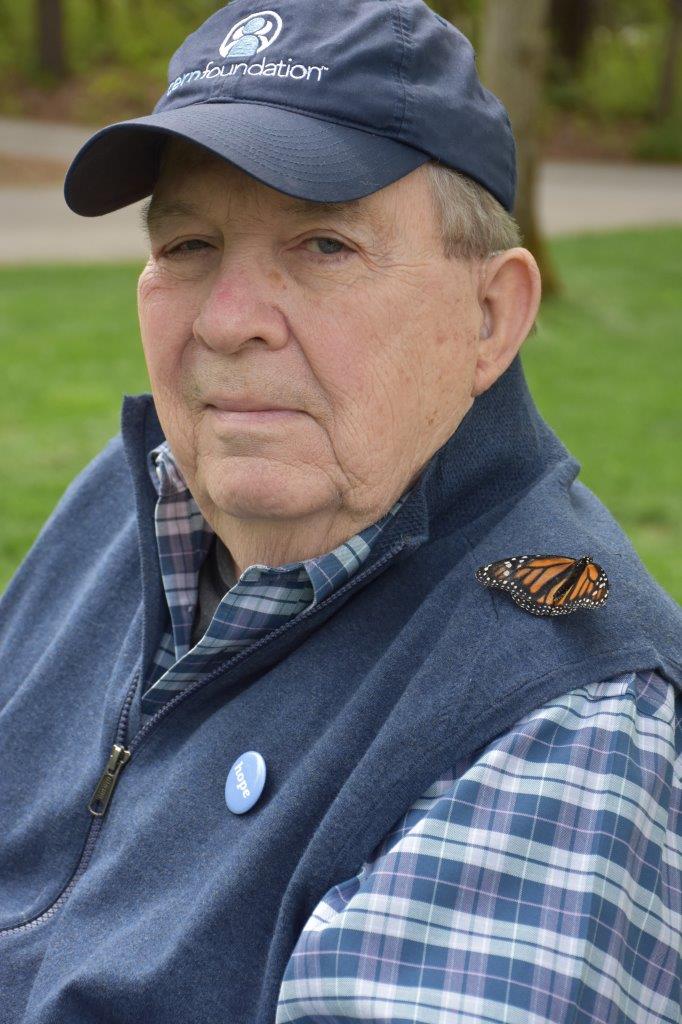Saying Goodbye to the Patient Who Inspired the CERN Foundation
— Categories: Ependymoma Community Posted on February 18, 2022
While it was never his intention or desire, Dallas Mathile’s diagnosis with an anaplastic ependymoma in 2002 would spark the creation of a unique research and advocacy organization that today serves as a collective voice, a safe and caring place, and an innovator, all for the ependymoma community.

Inspired by how Dallas continued to face his difficult diagnosis with grace, fortitude, and quiet charisma, his family and care team were determined to help others navigate their own journeys and forever change the outcome of those diagnosed with this rare brain tumor. Thus, in 2006, a group of experts in ependymoma research, care, and patient advocacy were assembled, forming a nucleus that would ultimately become the Collaborative Ependymoma Research Network (CERN) Foundation.
“[Dallas’s] journey and the long-term effects of the disease and treatment taught us so much about the importance of not assuming but understanding the impact through our research and helped guide us on providing care to those with incredibly rare diseases,” said Dr. Terri Armstrong, a CERN adviser and Senior Investigator, Deputy Branch Chief, and Associate Director of Patient Outcomes at the Neuro-Oncology Branch of the National Institutes of Health and National Cancer Institute.
Sadly, Dallas passed away on February 6, 2022, at age 77, after surviving his diagnosis for nearly 20 years.
“Dallas was a quiet, kind, and humble man, and certainly never sought recognition or accolades for his role in the creation of the Foundation,” said Chas Haynes, a CERN adviser and Executive Director of the Society for Neuro-Oncology. “But the field of neuro-oncology remains deeply indebted to this extraordinary and courageous man whose journey with ependymoma has benefited so many. He leaves a lasting legacy that will continue to positively impact the lives of those impacted by ependymoma.”
Through the formation of a 17-center international clinical trials network, the creation of a tissue repository, and the funding of preclinical research activities, CERN has been instrumental in fostering interest and collaborations for a rare cancer leading to seminal discoveries and new treatments for adult and pediatric patients. In fact, CERN completed the first prospective therapeutic clinical trial for adult ependymoma patients, a regimen that was successful and now is endorsed by the NCCN guidelines, and the CERN Tissue Repository has contributed to several large-scale tumor molecular analyses, helping to uncover that there are at least nine distinct subtypes of ependymoma.
“CERN has been instrumental in fostering interest and collaborations for a rare cancer leading to seminal discoveries and new treatments,” concluded Dr. Mark Gilbert, a CERN adviser and Chief of the Neuro-Oncology Branch of the National Institutes of Health and National Cancer Institute.
By reaching out to those living with ependymoma, CERN has also been able to incorporate the patient and survivor voice into research and care and to better understand the impact that both the disease and treatment had on the individual.
“We’ve learned that, likely due to the rarity of the disease, those diagnosed were often cared for by providers who had never seen someone with the disease before,” added Dr. Armstrong. “We learned that each individual’s experience was unique and just because a tumor was low-grade or completely removed, that didn’t mean it still didn’t have an impact on the person. This work, incorporating direct to patient and advocacy-provider partnerships was critically important to our success in clinical trial enrollment and impacting care.”
Today, the CERN Foundation, now a program of the National Brain Tumor Society, remains dedicated to advancing the ependymoma research agenda, and serves as an informational resource and an international beacon of hope for patients, caregivers, and advocates affected by this terrible disease.
“By bringing together those with the disease, those who love them, advocates, clinicians, and researchers, we can advance the science and assure that the person with the disease remains the central purpose of what we do,” said Dr. Armstrong. “I learned so much from Dallas and his family during my time as a care provider and partner in the CERN Foundation. He faced his illness with humor and humility and demonstrated the power of continuing to live your life while fighting for your life.”
A Message from the Executive Director of the CERN Foundation
Some of you might not know that this wonderful man was my father. I am so proud to be his daughter forever. I want to leave you with two important considerations. He recently told me that after all he had been through, the multiple brain surgeries, radiation, chemo, MRIs, continuing disabilities, and countless doctors’ appointments, it would have all been worth it if it had helped just one person, especially a child. Second, behind all of the science and diligent work that has happened over the past 15 years in ependymoma research, was the great love of a family and genuine relationships that will transcend the measure and boundaries of time.
While I am grieved to say goodbye to my father, I am also profoundly grateful to continue to share his legacy with this community. I know he will remain with us in spirit as we continue our important work in 2022 and beyond. There remains a lot to be thankful for and much to look forward to accomplishing together.
Sincerely,
Kimberly Mathile Wallgren
